Lucía Pulido
What have you seen lately that has impacted you?
The last thing I saw that impacted me very much was, in New York, a Mongolian group with an impressive singer. The band had her name and there was a musician that was presented as a multi-instrumentalist and he also created harmonics with his voice… He also played a flute and a sort of double bass with a horse skull, with three strings. The group was very good, but she was great.
We do not remember the name…
No… It was a name very…
When and where was it?
It was at Carnegie Hall at the beginning of November.
… / …
We made a stop on the road. Wee could not continue without knowing who it was. Restless, we went to look for the corresponding information. If it is not the one we looked for, we apologize; but, if it is?
And we believe it is.
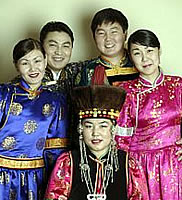 After an exhaustive investigation (that required man-hours, woman-hours and even hound-hours), we reached the conclusion that last November 4th, at 20:30 hrs., at Carnegie Hall, there had been a performance of the Badma Khanda’s Mongolian Buryat Band, where the so-called Badma Khanda is the singer (born in 1979 in Inner Mongolia). The multi-instrumentalist and vocalist cannot be other than Battuvshin Baldantseren (1972, Bulgan). The one who interpreted the instrument with the horse skull is Javkhlan Erdenebal (1983, Tov), and if we don’t name the rest of the members it is because we don’t want to overwhelm you with our solid knowledge of the Mongolian culture, country liberated in 1924, and whose capital is Ulán Bator. 90% of its inhabitants belong to the Mongolian ethnic group and the predominant religion is Tibetan Buddhism. We have taken a risk.
After an exhaustive investigation (that required man-hours, woman-hours and even hound-hours), we reached the conclusion that last November 4th, at 20:30 hrs., at Carnegie Hall, there had been a performance of the Badma Khanda’s Mongolian Buryat Band, where the so-called Badma Khanda is the singer (born in 1979 in Inner Mongolia). The multi-instrumentalist and vocalist cannot be other than Battuvshin Baldantseren (1972, Bulgan). The one who interpreted the instrument with the horse skull is Javkhlan Erdenebal (1983, Tov), and if we don’t name the rest of the members it is because we don’t want to overwhelm you with our solid knowledge of the Mongolian culture, country liberated in 1924, and whose capital is Ulán Bator. 90% of its inhabitants belong to the Mongolian ethnic group and the predominant religion is Tibetan Buddhism. We have taken a risk.
If it is, indeed, Badma Khanda, we will have given an example, once again, of a good restless spirit known as “fuori espinarum clavaditis”.
And if it is not her, we will have backslid for umpteenth time in what scientifically has been called “magnum papelonis universalorum”.
After this music-geographical bite, let us continue with the real main character of this article.
… / …
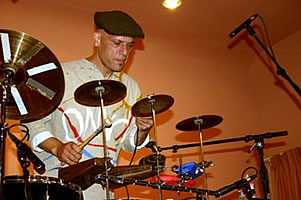 Now I remember that in Bahía, before coming here, I saw an Armenian percussionist… Arto…
Now I remember that in Bahía, before coming here, I saw an Armenian percussionist… Arto…
Arto Tuncboyaciyan?
That one! Hallucinating… He has the ability to make me cry…
I am still thinking about the voices, those that are unique; how much does it a good ear on the part of the receiver come into play?
Well, the good ear already comes with a background; on the other hand the voice, not really… the ear, is already pre-determined…
You mean that the same voice can wake up different things in each hearer…
Yes, but the ear is already filtered; the voice is the voice.
The variable is the ear.
Exactly. The voice is the simplicity; it is (pointing out) that little leaf, not the other one. With the voice exactly the same thing happens.
What would happen if tomorrow you are told that you cannot sing anymore, what would you do?
Well… I would die…
Is it that definite?
I guess so.
There is no plan B?
The thing is I don’t know how to do anything else in life (laughs). If I could speak… well… I would try to do it somehow, but (she thinks) without singing…
Well… don’t get scared… I was just kidding…
I know… but I have already considered it, and in such a situation I would feel the most useless being on earth…
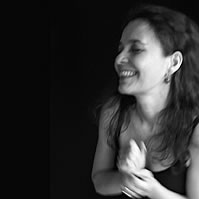 What do you feel when an article is being written about you?
What do you feel when an article is being written about you?
Many things could happen. There are people that can make you talk, and people that can not.
How is that?
There are talkative and non-conversationalist interviewers. It is like the musicians: the bad ones make you play worse, and the good ones improve you. And a good conversationalist can generate certain fluency and transform something that can be a torture into something amusing.
(With panic face) And now, are you going through a moment of torture or of amusement?
Well… When it will be published we will see if I have to wonder at what point I said this or that thing… and it does not depend so much on the person but on how the situation has emerged. It could also happen that your answers were monosyllabic because you wanted to finish quickly…
What would you tell stranger about what you do?
Huh… (she thinks) It is a question a little bit abstract (she smiles).
I correct you: it is completely abstract!
I try people to feel what I feel when I sing. Not so much for them to understand… because there is nothing to understand; I try, through what I am doing, to generate something, a reaction, independently of whether they like it or not. There is nothing worse than indifference… when I see something that I like or that moves me or that gives me the desire to sing…
Are we speaking of music or are there other things that produce in you a desire to sing?
The projects that people have, the creativity, a reading…
What would you like to generate through what you do?
The same thing that other things generate in me. The happiness of knowing that I have a project.
Is happiness the first thing that you feel when singing?
(She thinks) It is a mixture of happiness and excitement.
With what musicians have you felt more comfortable?
With many; in general I feel very comfortable with the ones playing with me. There has to be inspiration in order to get you to think. It is a back and forth thing.
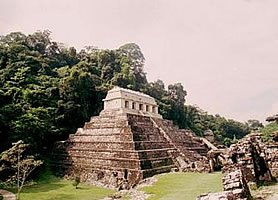 Tell me about your immediate projects.
Tell me about your immediate projects.
They are: to finish “Songbook III”, which is almost ready. To publish the CD with “Palenque”; there is a concert for a very big event next January 21st, (with Palenque) at Global Fest. There is an invitation to go to Russia in April with another project, “América Contemporánea.” It is very probable that between May and July I will be in Austria. I was offered an artistic residence, and there I will invent something to do.
Will you make folk Austrian music?
Not really… It is a project with Iván (Benavides) and an electronica musician. I have never approached electronica and we will see what happens. I want to have the experience of doing things on a short-term basis. And there is another pending tour with “Palenque” in Europe. We are also planning to go to Europe to present “Songbooks.”
Why “Palenque?”
It was a name that came to us, almost last-minute. The palenques were the places where the slaves took refuge when they were being chased after escaping. At that moment, I was working on a sound that was more “street” oriented, and I thought it was appropriate.
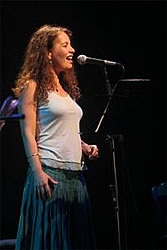 Politically, how do you feel in the United States?
Politically, how do you feel in the United States?
It is complicated, because to me it generates… (she thinks). In fact, I was questioning myself a lot, the fact of being in a country that generates many things in the world with which a great majority does not feel identified. And it provoked in me a great conflict, since I did wonder “if I don’t agree, why am I here”.
Well… but you are in New York… (laughs)
Exactly… that is the correct answer! New York is a place that allows me to sing. And I will always be in a place in which I am allowed to sing.
 Marcelo Morales
Marcelo Morales

